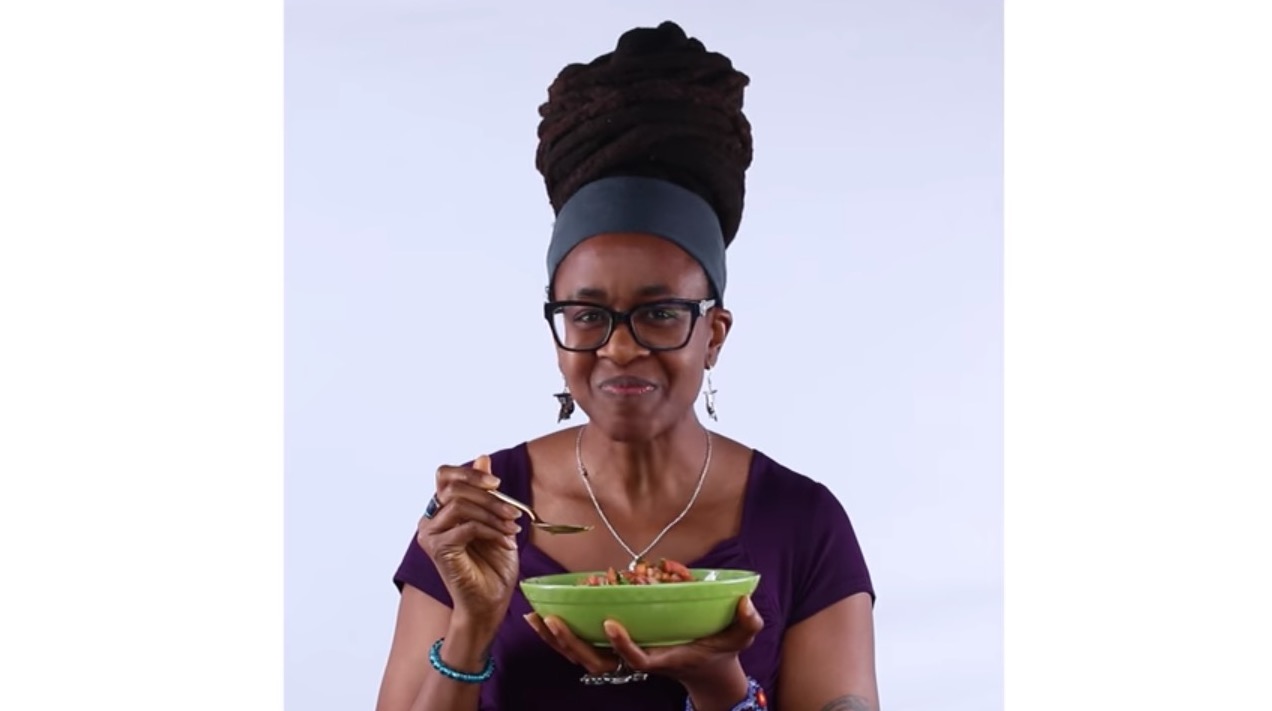Nnedi Okorafor on What Wakandan Food Looks Like and Why it Matters

Throwing a Black Panther party? Trying to feast like a king or queen? Try out the Wakandan jeweled vegetable pilau with berbere braised lamb. Nigerian-American writer Nnedi Okorafor of Black Panther: Long Live the King, Who Fears Death, and Lagoon teamed up with Tasty to develop this “Wakandan” dish. In this video, she discusses the thought that went behind the recipe and the importance of food to culture.
“In Wakanda, there are five tribes. Each of them is distinct in their own languages, ways, and history,” Okorafor explains. “Wakanda is an amalgamation of several African cultures. So just as the film pulls from African jewelry, arts, textiles, fabrics, architecture, and music, cuisines of Wakanda would follow the same line of thinking.”
In the story, the nation of Wakanda borders Kenya, Ethiopia, Uganda, and South Sudan. The writer uses the location as a starting point, saying, “Wakanda is land-locked in East Africa so we would look to those surrounding countries for inspiration for their cuisines. Wakanda is a very wealthy nation, so Wakandan food would be very rich and have the finest ingredients they’d have organic everything. The animals they’d eat would be clean, happy animals. Much of what Wakandans need would come from Wakanda.”
There’s probably some kind of substitute you can use when M’Baku gets hungry.
Okorafor continues in a talk that’s both incredibly fascinating in terms of fantasy world-building and a powerful reminder about why food matters so much in storytelling. The writer, like many others, comments on the impact of Black Panther on Hollywood representation:
” Wakanda is colorful, it’s teeming with life, it’s teeming with potential. Wakanda is a dream. Black Panther has turned the world’s eye to Africa in positive way. In the past we haven’t seen proper representation of African cuisine in mainstream media and this is one of the reasons why food is so important, because food in a lot of ways in representation of a people and when your cuisine is not given the stage, it’s not shown, you’re absent from the narrative.
One of the things about Black Panther that makes it so unique is its portrayal of Africa as a place of wealth, of diversity, of beauty. We know what the stereotype is around the world—the starving African. Parts of the world don’t even think that Africans eats [laughs] let alone have sophisticated cuisine. Food is often the representation of culture and people.”
The dish takes instructions can be found here. “African food is so diverse and it’s so full of flavors and colors and magic,” says Okorafor, “If you are not exposed to African food then you’re missing out on an important part of life.”
(via BoingBoing, image: screencap)
Want more stories like this? Become a subscriber and support the site!
—The Mary Sue has a strict comment policy that forbids, but is not limited to, personal insults toward anyone, hate speech, and trolling.—
Have a tip we should know? tips@themarysue.com